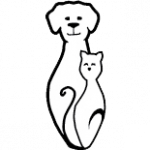Illustrated Articles
-
Whole food supplements, or glandular therapies, are supplements made from glands, organs or tissues from healthy animals. These supplements may be administered as whole fresh tissue or as tissue extracts.
-
A supplement is a concentrated ingredient that is added to the diet for nutritional or therapeutic benefits. Your best source of professional nutritional advice is a licensed veterinarian who is knowledgeable about supplements.
-
As veterinarians become more conscious of the details and nuances of how cats experience pain, they search for more methods with which to battle both acute and chronic pain in these patients. Therapeutic massage is one example of a physical medicine technique that has found a place in the feline pain management toolbox.
-
Tian Ma Gou Teng Yin is specifically designed to adress convulsions in Yin deficient patients. One consequence of Yin deficiency is that Yang energy has a tendency to rise upwards, producing "Internal Winds" and manifestinf as uncontrollable body movements, hypertension, loss of balance, suddne sensory deficits, adn even stroke. Indications include epilepsy, tremors, acute hearing loss, sudden vison loss (eg detached retinas) etc. Patients also have prominent Yin deficiency symptoms including unexplained weight loss, heat intolerance, resltessness, dy skin, dry eyes &/or coat. Tongue dry and red.
-
Obstructions in the Triple Heaterconstitutes another form of pathological excess, since they re formed by a plug of congealed Damp, known as Phlegm, resulting in severe Qi stagnation. Phlegm obstruction of the Triple Heater (TH) presents a particular problem for renal (kidney) function, since the triple heater is the Gate Keeper of the Kidneys, governing all deposits and withdrawals from their Yin reservoir. Gall BLadder 25 (GB25) is the specific point that influences the movement of Yin & Qi in and out of the kidneys.
-
Herbs are plants that contain ingredients with active therapeutic properties. These active ingredients may be present in the whole plant or only in a specific part. Herbal therapy is the use of herbs for medicinal purposes, either on their own or in combination with other herbs. Herbal treatment must be administered only after an accurate diagnosis has been made. Trained veterinary herbalists have the knowledge and skill to understand the interactions between different forms of treatment and to interpret the patient's response to therapy. Herbal treatment of serious disease in animals without veterinary training is not advised and frequently ineffective.
-
Homeopathy is a distinct philosophy of medicine that has its roots in eighteenth-century Germany, and subsequently spread to Europe, India, Australia, South America, the United States, and Canada. The underlying basis of homeopathy is the principle that "like cures like": the idea that a substance given at a toxic dose can produce a certain set of symptoms, but given in much lower doses, it can cure the same set of symptoms, regardless of their perceived cause. As veterinary homeopathy gains acceptance, there are an increasing number of veterinarians in private practice who possess the necessary training and experience.
-
Combining alternative medical therapies, either with other alternative therapies or with more conventional treatments, may improve a patient's health or speed the healing of disease. However, combined incorrectly, these same therapies have the potential to interfere with healing or cause serious health consequences. Veterinary practitioners trained in acupuncture, herbal therapy, and homeopathy are the best sources of information on what conventional and alternative treatments will combine well and which ones should not be used together.
-
Wei Ling Tang is the premier general cat maintenance formula, partly because of its bland taste but also because it adresses the main Chinese medical diagnosis found in cats: Spleen Qi deficiency with secondary Dampness acumulation. Certain dog breeds also benefit including Yorkies. COmmon signs and symptoms of Dampness include weight gains, ascites, and a greasy or clumpy hair coat with dander. Common symptoms of Spleen deficiency include chronic vomiting, chiliness, weakness, sleepiness, poor appetite, or loose stools. Where dampness is obtructing the normal descent of Stomach Qi, bloating and vomiting of mucus or fresh food may result. Disease indications for WLT include colitis, glomerulonephritis, low grade hepatitis, cirrhosis, pancreatitis, IBD and the early stages of hyperthyroidism. This formula provides indirect support of Liver Blood and Kidney Essence through its tonifying actions on the Spleen. It is safe for long tern use however should be avoided in "hot" animals.
-
Xian Fang Huo Ming Yin was origianlly used as an anti-microbial formula, as well as for the treatment of hemorrhagic disorders associated with Heat symptoms. Its common use however, is for the treatment of chronic lameness and arthritis in dogs that are often hot, overweight, prone to skin growths, adn worse in damp weather. The arthritis is worse with rest or over-exercise, improved wit light exercise, and a history of surgery or trauma. The formula has shown promise in the treatment and prevention of mammary tumors and tumors of the limbs, including melanoma. Adverse effects are not reported

